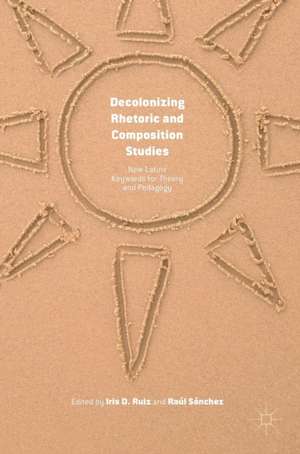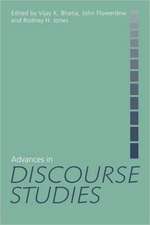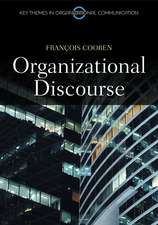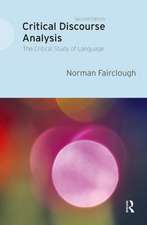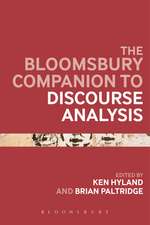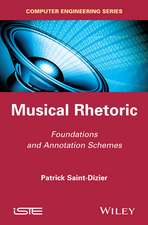Decolonizing Rhetoric and Composition Studies: New Latinx Keywords for Theory and Pedagogy
Editat de Iris D. Ruiz, Raúl Sánchezen Limba Engleză Hardback – 15 oct 2016
Preț: 724.94 lei
Preț vechi: 884.08 lei
-18% Nou
Puncte Express: 1087
Preț estimativ în valută:
138.72€ • 148.34$ • 115.66£
138.72€ • 148.34$ • 115.66£
Carte tipărită la comandă
Livrare economică 18 aprilie-02 mai
Preluare comenzi: 021 569.72.76
Specificații
ISBN-13: 9781137527233
ISBN-10: 1137527234
Pagini: 256
Ilustrații: XX, 195 p.
Dimensiuni: 148 x 210 x 18 mm
Greutate: 0.37 kg
Ediția:1st ed. 2016
Editura: Palgrave Macmillan US
Colecția Palgrave Macmillan
Locul publicării:New York, United States
ISBN-10: 1137527234
Pagini: 256
Ilustrații: XX, 195 p.
Dimensiuni: 148 x 210 x 18 mm
Greutate: 0.37 kg
Ediția:1st ed. 2016
Editura: Palgrave Macmillan US
Colecția Palgrave Macmillan
Locul publicării:New York, United States
Cuprins
Foreword.- Introduction: Delinking.- Part 1: Basics.- 1. Race.- 2. Literacy.- 3. Citizen.- Part II: Making Texts.- 4. History.- 5. Code Switching.- 6. Writing.- Part III: Self-(Re)Definitions.- 7. Pocho.- 8. Mestizaje.- 9. Éxito (Success).- 10. Chicana Feminism.- Part IV: Political Rhetoric.- 11. Illegal.- 12. Mojado.
Notă biografică
Iris D. Ruiz is Lecturer at the University of California, Merced, USA. She is the Co-Chair of the Conference on College Composition and Communication Latin@ Caucus.
Raúl Sánchez is Associate Professor in the Department of English at the University of Florida, USA. He has been a member of the Conference on College Composition and Communication Latin@ Caucus for over two decades.
Raúl Sánchez is Associate Professor in the Department of English at the University of Florida, USA. He has been a member of the Conference on College Composition and Communication Latin@ Caucus for over two decades.
Textul de pe ultima copertă
This book brings together Latinx scholars in rhetoric and composition to discuss important conceptual terms that have been misused or appropriated by forces working against the interests of minority students. In educational and political forums, rhetorics of identity and civil rights have been used to justify ideas and policies that reaffirm the myth of a normative US culture that is white, Eurocentric, and monolinguistically English. These attempts amount to a de facto project of neo-colonization, if “colonization” is understood to include not only the taking of land but also the taking of culture, of which language is a crucial part. The authors introduce the concept of epistemic delinking and argue for its use in conceptualizing the kind of rhetorical and discursive “decolonization” we have in mind, and offer examples of this decolonization in action through detailed work on specific terms. Contributors to this volume will draw on their training in rhetoric and on their own experiences as people of color to reset the rhetorical agenda for the future. They theorize new key terms to shed light on the great varieties of Latinx writing, rhetoric, and literacies that continue to emerge and circulate in the culture at large in the hopes that the field will feel more urgently the need to recognize, theorize, and teach the intersections of writing, pedagogy, and politics.
Caracteristici
Together 21st century latinx scholars in the field of rhetoric and composition to both claim and reclaim important conceptual terms that have been misused or appropriated by hegemonic forces working against the interests of minority students
